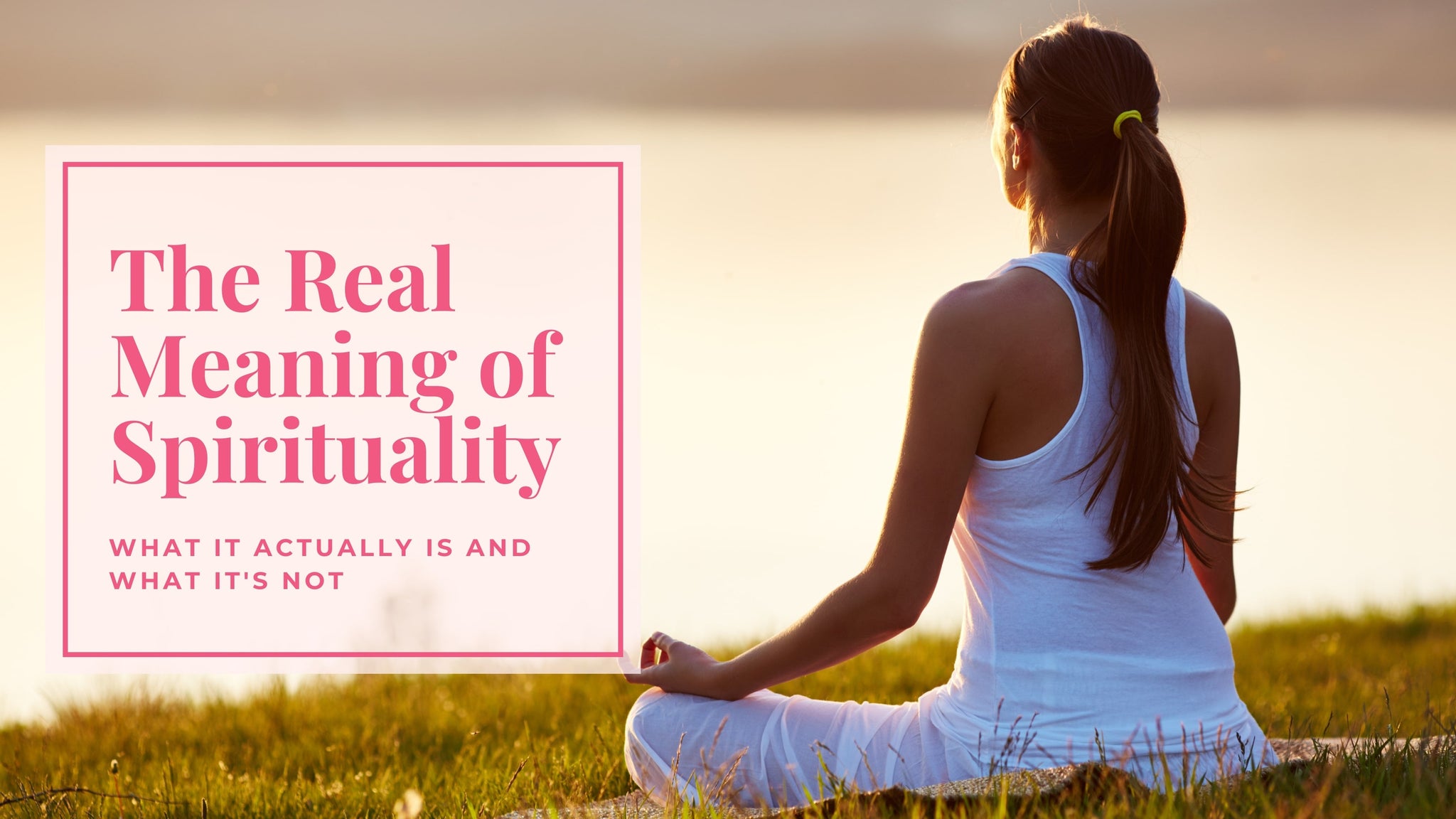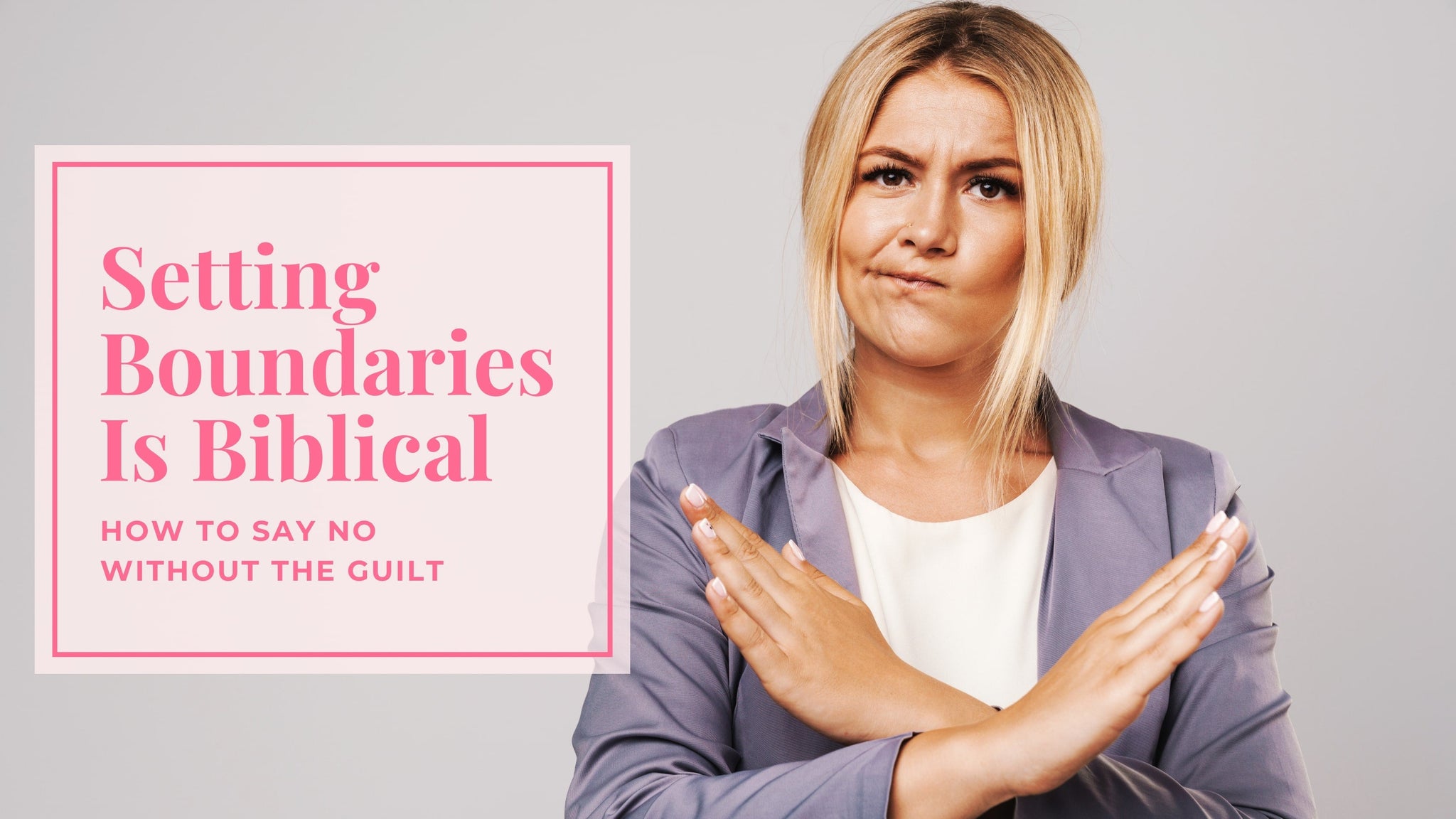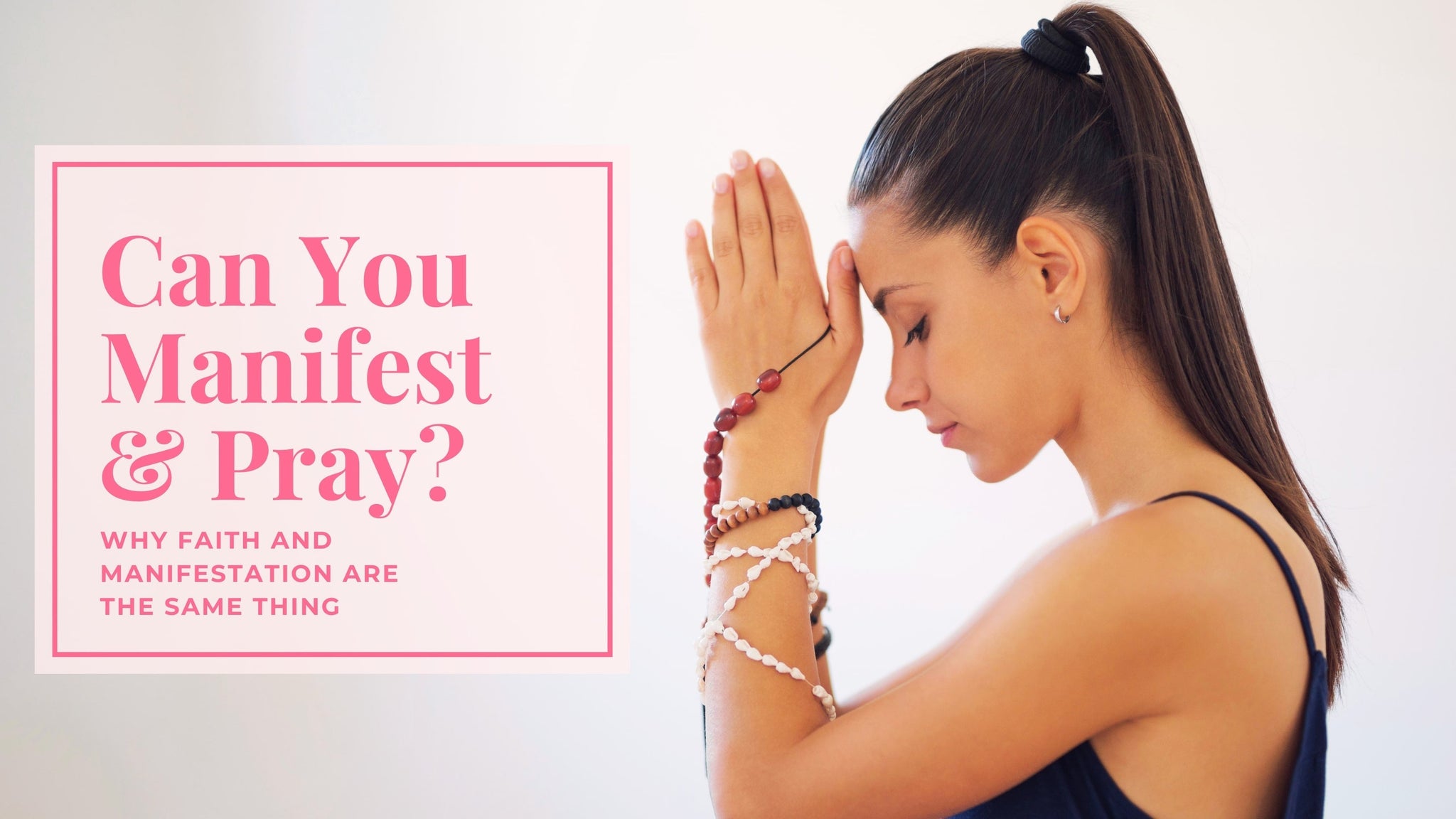
What is Spirituality Really? The True Meaning And Common Myths
Have you ever found yourself wondering what spirituality really means, beyond the buzzwords, beyond the vague Instagram quotes?
You're not alone.
I used to feel the same way. I craved something deeper, but didn't always have the words for it. I just knew there had to be more.
With so many different definitions floating around, it can get confusing fast.
This post is a gentle, grounded look at what spirituality truly is, how it feels, and why it matters, especially when you're longing to live a slower, more soul-aligned life with God at the center.
What Spirituality Isn't (Let's Clear the Air)
For years, I thought being "spiritual" meant I had to have it all together.
Maybe you've felt that pressure too?
Let me tell you what I've learned spirituality is NOT:
- It's not about being "woo woo" or needing to know all the answers
- It's not about being perfect, enlightened, or always peaceful
- It doesn't have to mean religion (though it can include it)
- It's definitely not one-size-fits-all
For a long time, I thought I had to "look" spiritual, like I needed to journal a certain way, know all the right scriptures, or be completely calm all the time.
But true spirituality has nothing to do with aesthetics.
It's much simpler and deeper than that.
What Spirituality Really Is
Here's a definition that feels right to me, and hopefully you too:
Spirituality is the part of us that seeks connection, connection with something greater than ourselves, connection with meaning, with love, with truth, with God. It's how we make sense of our place in the world and how we care for our inner life.
When we break it down, spirituality shows up in four main types of connection:
- Connection to God or a higher power – That sense of something greater than yourself guiding your path
- Connection to your inner world – Getting to know your emotions, intuition, and thoughts
- Connection to others – Developing empathy, compassion, and a heart for service
- Connection to creation – Finding wonder in nature, beauty, and present moments
Have you ever taken a walk at sunset and felt peace flood over you?
That's a spiritual moment.
Have you ever cried during worship or felt a quiet whisper in your soul guiding you?
That's your spirit responding.
Why It Makes Sense (Science + Soul)
The amazing thing is, even science backs up what our souls have always known:
- Our brains are wired for meaning and connection. Studies show humans naturally seek patterns, purpose, and higher meaning. It's literally built into us!
- Prayer and silence actually calm our nervous system. When we engage in contemplative practices, we activate what scientists call our "rest and restore" mode, the parasympathetic nervous system.
- Journaling changes our brain. When we reflect, write, or practice gratitude, we're actually rewiring our neural pathways, making us more resilient, empathetic, and grounded.
- We're made for compassion. Our brains have special "mirror neurons" that respond to others' emotions, which helps explain why acts of love, kindness, and presence feel sacred.
Even from a scientific lens, spiritual practices help us slow down, feel safe, and reconnect, with God, ourselves, and others.
That's not imagined, it's real, and it's so powerful.
How You Might Experience Spirituality (Even If You Didn't Call It That)
You don't need a special title to experience this feeling.
You might've already felt it in ways like:
- That sense of awe when you're standing in nature
- Tears that come unexpectedly during worship
- Writing in your journal and suddenly finding clarity about something that was bothering you
- Hearing a quiet whisper of guidance during a hard time
- Pausing to pray in the middle of chaos
- Thanking God or the universe after a miracle, even if you're not sure why
These moments, on your bedroom floor, in the car, or on a morning walk, they all count.
That's spirituality too.
Why It Matters
So why does all this matter? Because spirituality:
- Gives life deeper meaning beyond just getting through the day
- Grounds you when everything feels chaotic
- Helps you make decisions based on your true values
- Builds resilience, peace, and purpose
- Keeps you aligned with what really matters
- Creates space for healing, hope, and transformation
Spirituality doesn't take away life's hard moments, but it gives you an anchor. A compass. A way home.
How to Start Exploring Your Spiritual Life
Want to start exploring deeper?
Here are some easy ways to start:
- Create small pauses in your day to breathe, pray, or reflect
- Journal your thoughts and questions (not just what you think are the "right" answers)
- Read scripture slowly, letting it soak in rather than rushing through
- Practice gratitude by noting 3 things you're thankful for each day
- Take a walk and really look around and notice God's presence in creation
- Join a community or faith-based space where you can grow with others
- Use a tool like the Selah & Soul Journal to guide you deeper
Remember, spirituality isn't about achieving anything, it's about becoming more present, more aware, and more open to God's love in every corner of your life.
A Final Encouragement
You really don't have to have it all figured out.
You're allowed to be curious.
You're allowed to start small.
This is a journey, and it's one God walks with you.
I'd love to hear how you're exploring spirituality in your own life!
Leave a comment below, or if you prefer, just sit with these thoughts and see what stirs in your heart.
And if you found this helpful, I have a free spirituality checklist you can download to help you see if what you have been feeling is spiritual or not. You can find it HERE!
Start small, stay open, and watch what happens when you make space for the sacred in your everyday life.
And please, come back and let me know how it goes, I'd truly love to hear your story.
If you made it all the way to here, thank you so much for reading my blog post, it really means more than you know.



